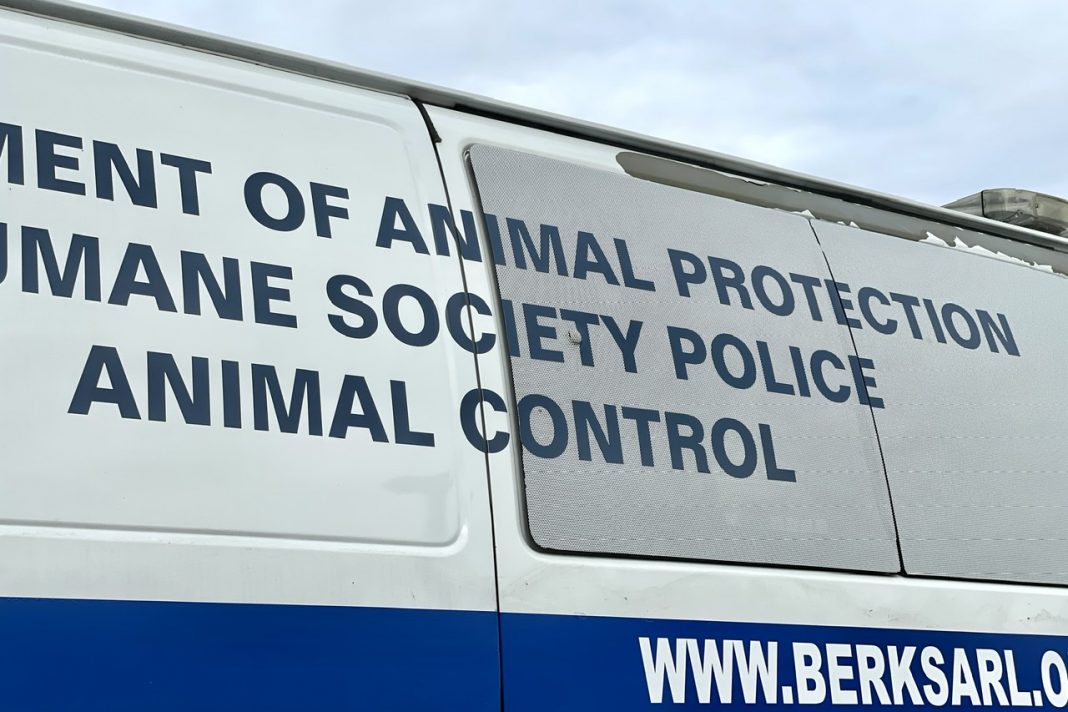A cat impounded in St. Lawrence Borough by the Animal Rescue League of Berks County‘s Department of Animal Protection has tested positive for rabies, the organization announced Friday afternoon.
In addition, the ARL also received another call Friday alerting a cat showing potential symptoms of rabies in the area of Jacksonwald Avenue, also in St. Lawrence. Officers are in the area to contain the cat.
The first cat, a black medium-sized short hair female, was captured near Parkview Road after a resident call reporting that he was attacked by a cat.
“We immediately responded to the resident’s call and secured the cat,” said Corporal Savannah Baller from the ARL’s Department of Animal Protection. “At the moment, we know that this cat scratched a resident’s leg, who was already notified and received proper treatment. If anyone else was bitten or scratched by an animal in this area, they should seek medical attention immediately.”
“Residents reported that the first cat was part of a significantly-sized cat colony in the area, so we activated our protocols and started trapping the cats to get them examined, neutered and vaccinated immediately to slow and stop the virus from spreading,” said Alexis Pagoulatos, ARL’s CEO.
“St. Lawrence has been proactive by securing a full-service Animal Control contract with us, and all our departments are mobilized and working tirelessly on getting this serious situation under control. Residents will see ARL staff and representatives in the area spreading the news and humanely trapping cats for examination and TNR likely for several weeks as we strategically target this problem.”
“Currently, TNR (Trap-Neuter-Return) programs are the most effective way of protecting community cat populations and thus protecting the people within our community from rabies exposure,” said Dr. Jason Banning, Veterinary Lead at the ARL.
“TNR stabilizes colony populations reducing the chance of a colony member coming into contact with a rabid animal, and in addition, every cat through the ARL’s TNR program also receives a rabies vaccine which further reduces the risk of contracting rabies when exposed.”
“On the other hand, the most important action to prevent rabies in owned dogs and cats is to make sure that their rabies vaccine is up-to-date and to keep them away from unknown animals, especially wildlife. If an owner suspects their pet was bitten or scratched by a rabid animal, they should call animal control or their local police department to capture the animal and seek immediate veterinary care,” said Dr. Banning.
The ARL will be having a free pet vaccination clinic for the residents of St. Lawrence on April 12th and 21st from 4 PM – 7 PM at St. Lawrence’s Borough Hall.
During the event, pets will receive rabies and other protective vaccinations and microchips. This free event is possible thanks to a grant by Petco Love and Tina Saracino’s State Farm Agency.
According to the CDC, rabies is a neurological virus that infects the central nervous system of mammals, ultimately causing disease in the brain and death in 99.9% of human cases if left untreated. Although 90% of reported cases of rabies in animals occur in wildlife–mainly skunks, raccoons, bats, coyotes, and foxes–the virus can be transmitted to dogs, cats, and cattle who have not received vaccination.
Common symptoms of rabies in animals include general sickness, problems swallowing, excessive drool or saliva, an animal who bites at everything, an animal who appears tamer than you would expect, an animal who is having trouble moving or may be paralyzed, or a bat that is on the ground. (Source: CDC)
For humans who have been exposed to rabies, the incubation period could last for weeks to months and may vary based on how far the exposure location is from the brain. Common symptoms of rabies in humans include discomfort or a prickling or itching sensation at the site of the bite, progressing within days to acute symptoms of cerebral dysfunction, anxiety, confusion, and agitation. As the disease progresses, the person may experience delirium, abnormal behavior, hallucinations, hydrophobia (fear of water), and insomnia.
“Residents should be alert for other animals in the area with signs of rabies and should not allow their pets outside unsupervised,” said Corporal Baller. “If you suspect that an animal is infected with rabies, please immediately call the animal control provider of your municipality or your local police department and do not approach the animal by any means.”


